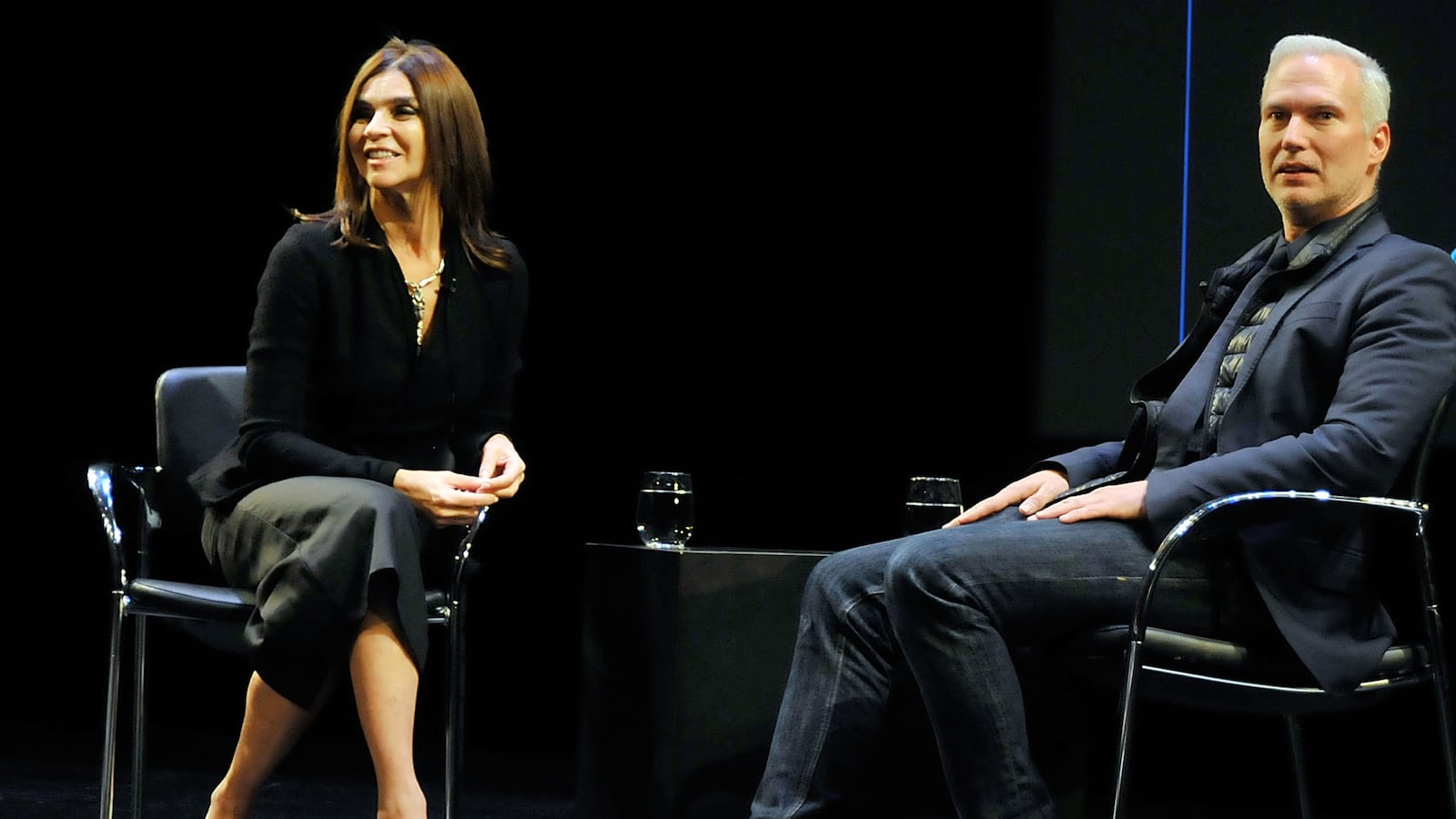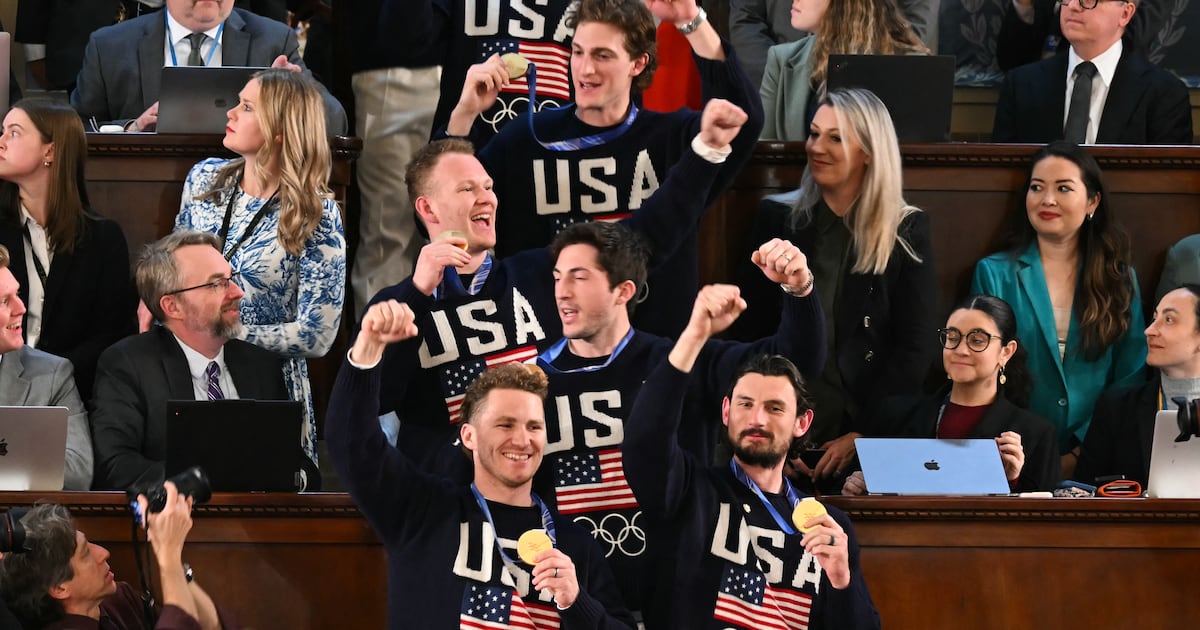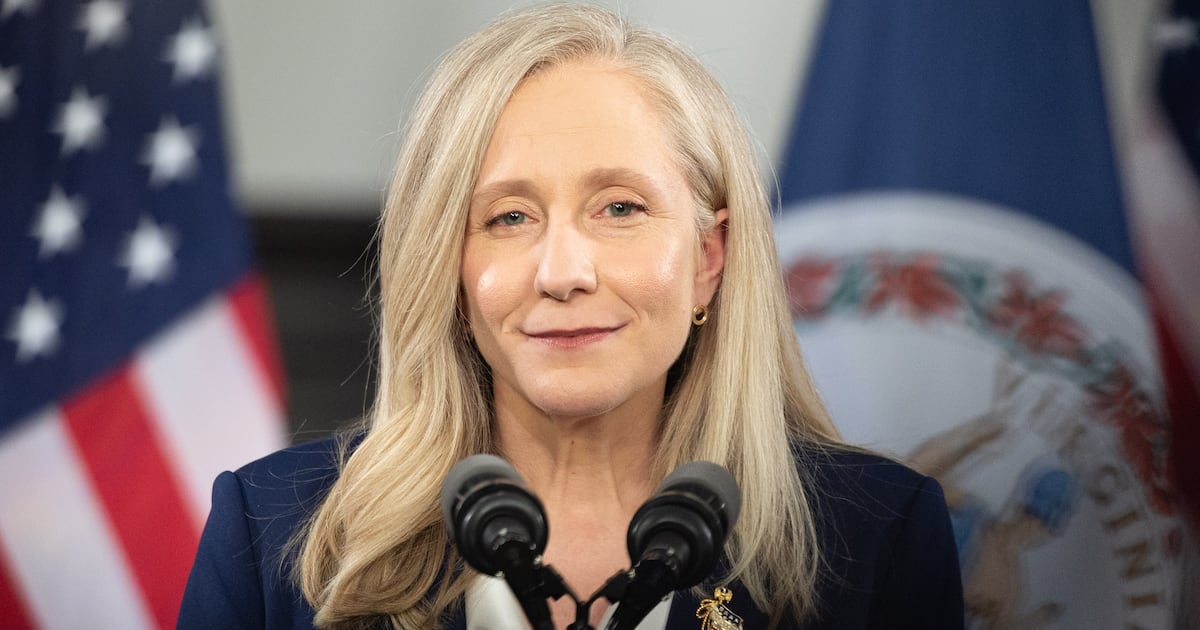
Despite her many high-profile projects, Carine Roitfeld still manages to maintain a sense of enigma in the public mind. So when the former editor of French Vogue, who now serves as the editor of her own magazine, CR Fashion Book, and as global fashion director of Harper’s Bazaar, sat down with Klaus Biesenbach, director of MoMa’s PS1 at New York’s French Institute Alliance Française on Monday night for a discussion about creativity, it’s safe to say that the audience was pretty intrigued. Biesenbach (who was swapped in at the last minute for the original moderator, W’s Stefano Tonchi) isn’t well acquainted with the fashion’s inner-workings, so he took his own approach instead, acting as if the discussion were a hypothetical studio visit with an artist, providing a more conceptual landscape for conversation.
He encouraged Roitfeld to explore the artistic reasoning behind her work rather than simply recalling of her life’s accomplishments. Like the inimitable “G” pubic shaving she had ordered-up for a Gucci ad campaign in 2003—an incident that Biesenbach knew nothing about. But that audience’s devoted fashion fans (even this writer, who was around 14 years old at the time of its release) were fully aware of the infamous image. Nudity and shock factor was what Roitfeld’s French Vogue was basically all about. “A lot of people talk about me as the queen of porno chic—I don’t like this, but I like the word chic … I like glamour,” she said of the scanty fashion spreads that made her famous. But despite the antics, Roitfeld insists that she has a lot of respect for models—a runoff effect of modeling in her late teens. “Not a top model, just a little model,” she added. “I have a lot of respect for what they do. To be a good model, you have to be very smart.”
Both admired for her personal style and the hypererotic nature of her fashion spreads, Roitfeld serves as one of the industry’s jack-of-all-trades—fulfilling a job that seamlessly merges editing, styling, consulting, and talent scouting into a single profession. “I think my product is a dream,” she explained of her overarching work, “I’m a dreamer … in fact, when I’m on a plane it’s very difficult to fill out my immigration paper. I don’t know what to write for a job.” Consistently fit, Roitfeld recently told Harper’s Bazaar that she’s hooked on a new ballet-inspired workout that helped lift her butt to new heights. So, not surprisingly, she admitted that, “If I had another life, I’d come back as a ballerina—I hear I have a good foot. It’s the last pure sport around, there’s no Nike or Coca-Cola [sponsorship] behind it.”
Following her departure from French Vogue in 2010, Roitfeld quickly set up a new office in New York, establishing CR Fashion Book in collaboration with Steven Gan’s Fashion Media Group LLC, which also publishes art-house fashion magazines like V magazine and Visionaire. The geographical switch-up begged the question if Roitfeld felt inclined to ramp-up her level of political correctness now that she was working in America, reaching an audience that’s presumably more sensitive than France’s admissible public. But Roitfeld was quick to mention that France isn’t as liberal as Americans would like to think. “Karl Lagerfeld decided to come to my ball in Paris [for French Vogue’s 90th anniversary] dressed in a burqa so he wouldn’t be recognized ... he was arrested outside,” she said, “so he didn’t come to the party, but there were three our four people that came dressed as Karl Lagerfeld, so it made up for it in a way.”
While the transition away from a glossy life as one of Condé Nast’s top editors was initially difficult, Roitfeld admitted that there were high points to her departure from Vogue as well. “I think it’s good to go back to reality, now I know what it’s like to fight for a cab in the street again.” Especially since, in her mind, fashion isn’t always meant to be taken seriously. “We are very lucky to work in fashion and not work in a hospital or something,” she said, “where the biggest deal we come across is perhaps the length of a skirt.” A lacking sense of humor, in Roitfeld’s opinion, was excluded from films like The Devil Wears Prada and The September Issue, the latter of which had, “something missing, it was about business and not creativity. I think it was a bit sad.”
But looking into the future, Roitfeld now has a new magazine and a newly created position with Harper’s Bazaar to attend to. And it’s her job as Bazaar’s global fashion director that has Roitfeld the most excited. “It’s a global world in fashion right now. I’ve gone from 50,000 readers [at French Vogue] to 11 million readers. I think it’s a very unique and amazing arrangement. It’s never been done before,” she said of her new job that will syndicate several photo shoots per year in all of Bazaar’s 26 international editions. Her first shoot for the new title took place just three days ago amidst the Hurricane Sandy recovery efforts—leaving Roitfeld with no power on set. “They say when you have everything against you, you get the best of what you do, I’m very proud of the outcome.”






